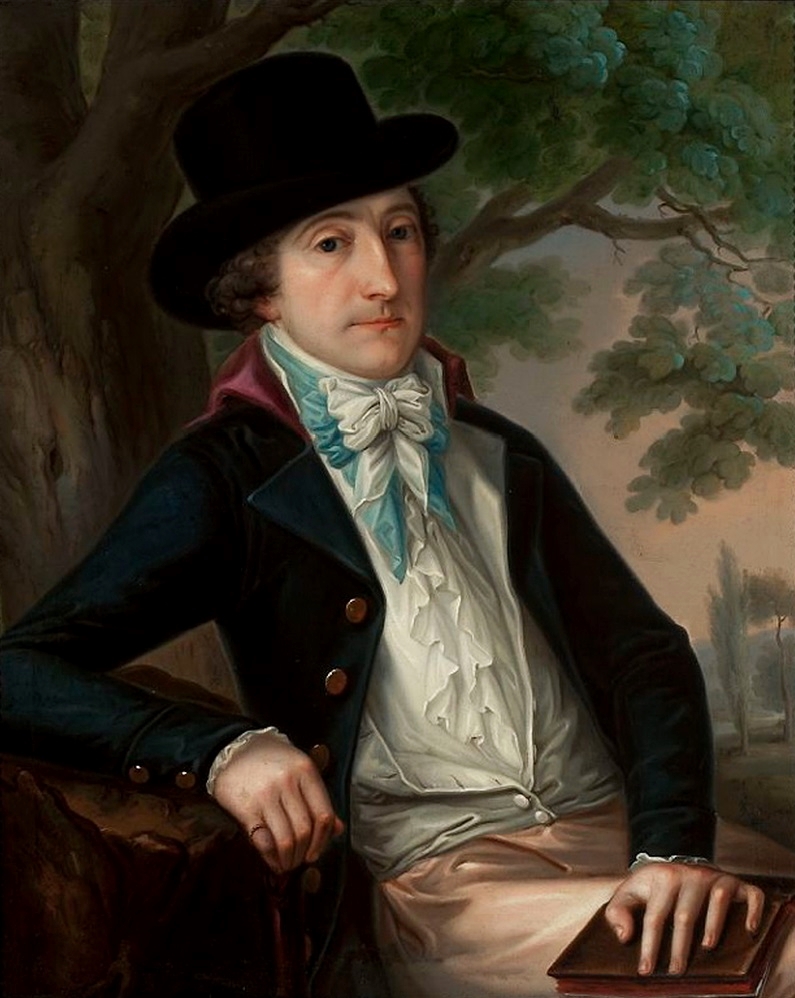————
Wojciech Bogusławski (Wappen Świnka, eines der ältesten Adelswappen Polens) wird als „Vater des polnischen Theaters“ bezeichnet, weil er für sein nationales und fortschrittliches Repertoire kämpfte, an dessen Erschafftung er mit Werken von patriotischer und politischer Bedeutung teilhatte (u. a. Heinrich VI. auf der Jagd, 1792, Die Krakowiter und die Bergbauern, 1794). Er war langjähriger Direktor des Nationaltheaters in Warschau, betrieb auch eigene Theater in Vilnius und Lemberg und organisierte Gastauftritte in anderen Städten. 1801 baute er aus eigenen Mitteln ein Theater in Kalisz und betrieb dort bis 1823 seine Theatertätigkeit.
Die Premiere der Krakowiter und der Bergbauern im Warschauer Nationaltheater, die er selbst inszenierte und die Rolle des Bardos spielte und sang, war ein großer Erfolg. Voller verständlicher Anspielungen und Metaphern richtete sie sich gegen die Konföderation von Targowica, rief zur Einheit auf… Deshalb wurde nach drei Aufführungen befohlen, sie vom Spielplan abzusetzen. Die Oper wurde vergessen, Stefanis Partitur ging verloren. Sie wurde erst 1929 von Leon Schiller gefunden und in Erinnerung gerufen. Seitdem sind die Krakowiterein wesentlicher Bestandteil des Repertoires polnischer Theater als „nationale Oper”, wie Schiller selbst sie nannte.
Bogusławski schrieb, überarbeitete oder übersetzte etwa 80 Dramen und Opernlibretti, außerdem war er Schauspieler, Opernsänger, Übersetzer, Lehrer, Regisseur und Dramatiker. Er gehörte auch einer Freimaurerloge an, in der er zum Meister ernannt wurde.
Wojciech Bogusławski ca. 1798, Öl auf Leinwand, Autor Józef Reichan, Nationalmuseum in Warschau


